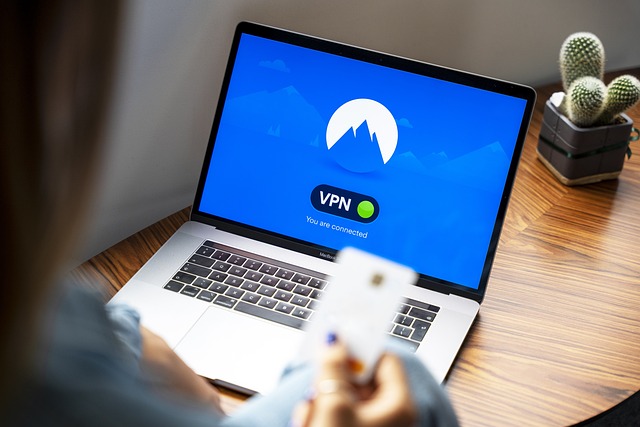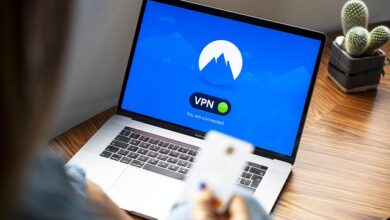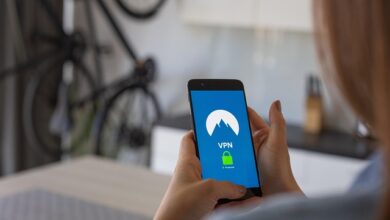How to Choose the Best VPN for Maximum Privacy

In today’s digital age, privacy and security have become more important than ever. With an increasing number of cyber threats, data breaches, and government surveillance, using a Virtual Private Network (VPN) has become essential for anyone who values their online anonymity and protection. However, with hundreds of VPN providers available in the market, choosing the right one can be overwhelming. This article will guide you through the key factors to consider when selecting the best VPN for maximum privacy.
Understanding What a VPN Is
A Virtual Private Network (VPN) is a service that creates a secure and encrypted connection over the internet between your device and a remote server operated by the VPN provider. By routing your traffic through this server, a VPN hides your IP address, making it difficult for others to track your online activities or identify your location. Additionally, it encrypts your data, ensuring that even if someone intercepts it, they won’t be able to decipher its contents.
Why You Need a VPN
Before diving into how to choose the best VPN, let’s first understand why you might need one:
- Enhanced Privacy : A VPN masks your IP address, preventing websites, advertisers, and ISPs from tracking your online behavior.
- Security on Public Wi-Fi : Using public Wi-Fi networks without protection leaves you vulnerable to hackers. A VPN ensures your data remains safe even on unsecured connections.
- Access to Geo-Restricted Content : Many streaming platforms restrict access based on geographic location. A VPN allows you to bypass these restrictions by connecting to servers in different countries.
- Protection Against Government Surveillance : In some regions, governments monitor citizens’ online activities. A reliable VPN helps safeguard your digital freedom.
Key Factors to Consider When Choosing a VPN
When evaluating potential VPN services, there are several critical aspects to keep in mind. Below, we break down each factor in detail:
No-Logs Policy
One of the most important considerations when choosing a VPN is whether it adheres to a strict no-logs policy . This means the provider does not collect or store any information about your browsing history, download activity, or other personal data. Some providers claim to offer no-logs policies but may still record metadata such as timestamps or connection details. Always verify the provider’s logging practices by reviewing their official privacy policy and checking independent audits conducted by third parties.
Encryption Standards
Encryption is the backbone of any good VPN. Look for a provider that uses robust encryption protocols, such as AES-256 , which is widely regarded as military-grade encryption. Ensure the VPN also supports modern cipher suites like ChaCha20-Poly1305 for added security. Weak encryption standards can leave your data exposed to interception and hacking attempts.
Jurisdiction
The country where a VPN provider is headquartered plays a significant role in determining its ability to protect your privacy. Avoid providers located in countries known for mass surveillance programs, such as those part of the Five Eyes, Nine Eyes, or Fourteen Eyes Alliances . Instead, opt for providers based in jurisdictions with strong privacy laws, such as Switzerland, Sweden, or Panama.
Server Locations
A quality VPN should have a vast network of servers spread across multiple countries. The more server locations available, the better your chances of finding a server close to your desired destination. Proximity to a server improves connection speed and reduces latency. Additionally, having servers in diverse regions gives you greater flexibility to access geo-blocked content worldwide.
Protocols
Different VPN protocols provide varying levels of security and performance. Commonly used protocols include:
- OpenVPN : Highly secure and versatile; works well on most devices.
- WireGuard : Known for its speed and efficiency while maintaining strong security.
- IKEv2/IPsec : Ideal for mobile users due to its fast reconnection capabilities.
- L2TP/IPsec : Offers decent security but slower speeds compared to OpenVPN and WireGuard.
Choose a provider that offers a range of protocols so you can select the one that best suits your needs.
Kill Switch Feature
A kill switch is a crucial feature that automatically disconnects your internet connection if the VPN connection drops unexpectedly. This prevents your real IP address from being exposed and ensures your privacy remains intact. Make sure the kill switch is easy to enable and functions reliably.
Speed and Performance
While security is paramount, you don’t want to sacrifice speed unnecessarily. Test the VPN’s performance under various conditions, including downloading large files, streaming high-definition videos, and browsing the web. Pay attention to factors like ping time, upload/download speeds, and overall stability.
User-Friendly Interface
Even the most secure VPN won’t do you much good if it’s too complicated to use. Opt for a provider with an intuitive interface that makes it simple to connect to servers, toggle settings, and manage accounts. Mobile apps should be lightweight yet functional, offering seamless integration with iOS and Android devices.
Price and Value for Money
Budget constraints often play a role in decision-making. While free VPNs exist, they typically come with limitations, such as slower speeds, fewer features, and questionable privacy practices. Paid subscriptions generally provide better value for money, especially if the provider offers long-term discounts, multi-device support, and excellent customer service. Compare pricing plans carefully and look for hidden fees or restrictive terms.
Common Mistakes to Avoid When Selecting a VPN
Here are some common pitfalls to steer clear of during your search:
- Trusting Free Services : Free VPNs often monetize user data or serve intrusive ads, compromising your privacy.
- Ignoring Reviews and Ratings : Relying solely on marketing claims without consulting real-user reviews can lead to disappointment.
- Overlooking Compatibility : Ensure the VPN works seamlessly across all your devices, including smartphones, tablets, laptops, and smart TVs.
- Neglecting Customer Support : Reliable 24/7 support via live chat or email can make a huge difference when troubleshooting issues.




